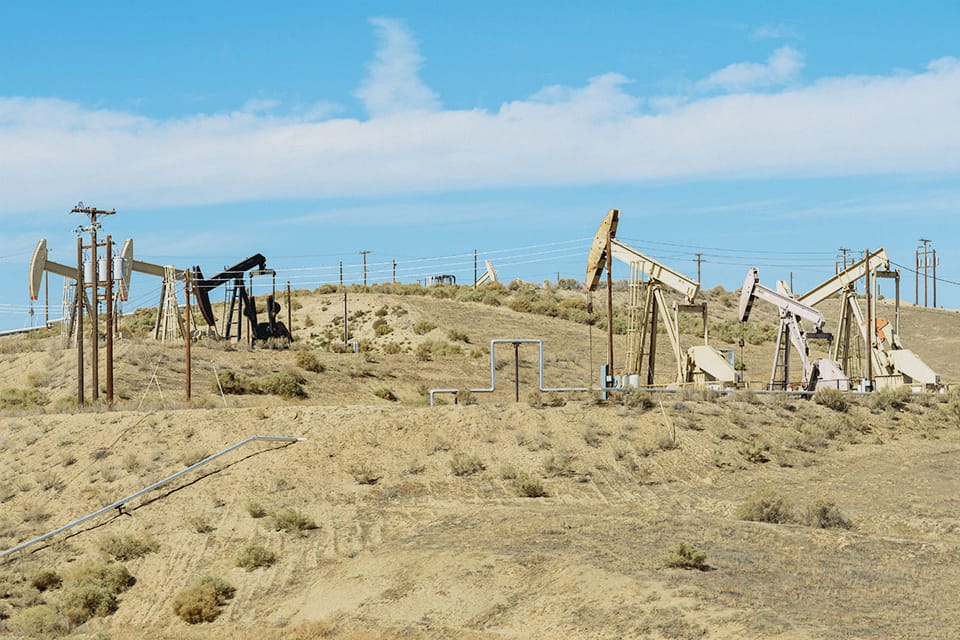
The Contractor Worker Credentialing Gap | Risk Matrix Episode 130
THE RISK MATRIX Cutting-edge podcast on occupational safety and risk management. Hosted by industry titans: JAMES JUNKIN, MS, CSP, MSP,…

Oil and gas extraction is key in the upstream oil and gas sector and is essential for the world’s energy supply. However, this process exposes several risks to on-site workers, and its effects can be extensive and long-lasting.
Addressing these threats to the workforce is critical. It ensures that companies use energy resources responsibly as global demand rises.
This article discusses ten dangers associated with the extraction of oil and gas. Managers and workers should be aware of these risks and take steps to avoid them.
Oil and gas have been a cornerstone of economic development for many years. This pursuit has improved extraction technology, helping oil and gas companies work in challenging and remote places.
However, with these new locations come added risks to workers and the surrounding environment. They include the following ten:
Fires and explosions are always an immediate threat during oil and gas extraction. Hydrocarbons are highly combustible, and something as simple as a minor spark can cause a catastrophic explosion.
These incidents can result in:
Oil spills can turn into devastating events and can happen wherever companies drill. The environmental effects of oil spills are well-known and include the following:
The ecological impacts can last for years, as documented in the aftermaths of the oil industry’s prior incidents.
Workers in the oil and gas sector encounter various hazardous substances, including but not limited to the following:
These substances pose long-term health hazards because of their link to severe health complications such as:
Workers may develop hearing issues from loud machinery during drilling, a significant health concern in the workplace. These conditions might include the following:
Also, noise pollution can disrupt nearby wildlife’s natural habitats and behaviors.
Upstream workers face many physical hazards that can lead to injuries or fatalities if not correctly managed. These risks include the following:
Working in often isolated conditions can be mentally taxing. Long hours in dangerous places away from family and friends can cause many psychological conditions, including the following:
Extracting fossil fuels can adversely impact the environment beyond what happens during oil spills. It can also cause:
Extracting fossil fuels releases large quantities of greenhouse gases into the atmosphere, including methane and carbon dioxide. These emissions have substantial impacts on global warming and climate change, such as:
Blowouts, or uncontrolled discharges of gas and oil from wells, can cause serious accidents. More specifically, they can:
The oil and gas industry is vulnerable to security threats. This is because it is essential for supporting economies and infrastructure. These dangers may come from physical and cyber domains and affect financial performance, operations, and safety.
Key security risks include the following:
The extraction of oil and gas is an involved process that presents a range of dangers to workers. From explosions to security threats, the impacts of this industry are significant and far-reaching. However, by prioritizing safety and responsibility, oil and gas companies can minimize the associated hazards while helping fulfill society’s energy needs.
To do this effectively, hiring clients must employ a skilled and qualified workforce trained for the upstream industry. These workers must know how to use sophisticated machinery and manage complex oil and gas extraction processes.
However, this requires implementing a risk management platform with the best technology, safety training, and industry expertise. Please work with us to create a solution that helps you find and train qualified contractors quickly and efficiently.
Contact us today to learn more.


THE RISK MATRIX Cutting-edge podcast on occupational safety and risk management. Hosted by industry titans: JAMES JUNKIN, MS, CSP, MSP,…

THE RISK MATRIX Cutting-edge podcast on occupational safety and risk management. Hosted by industry titans: JAMES JUNKIN, MS, CSP, MSP,…
We’ll send you practical and insightful supply chain risk management info that can benefit your business. Plus, important company updates that keep you in the loop.
